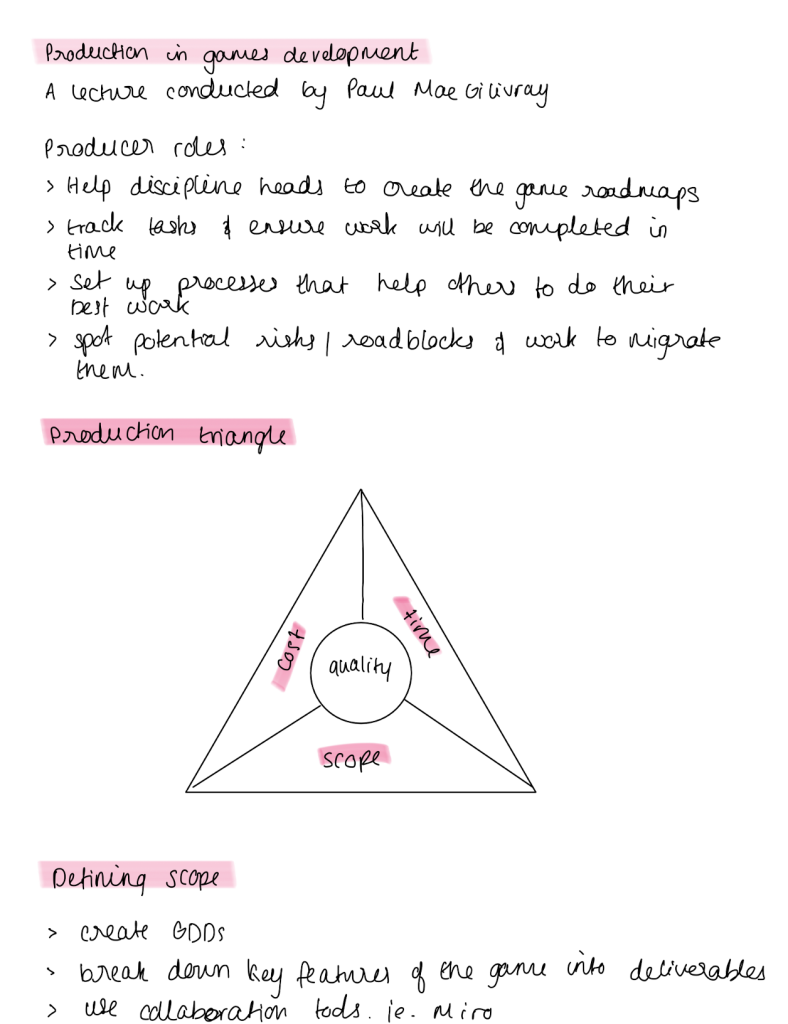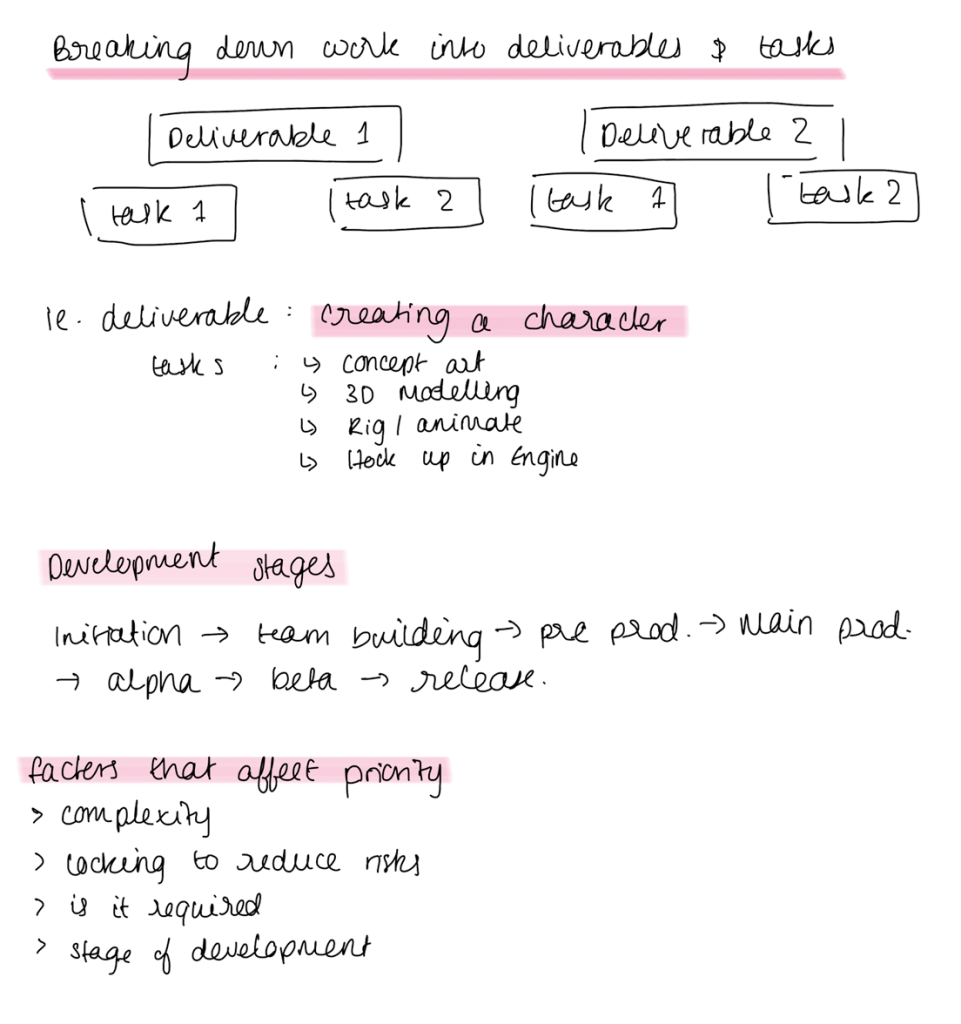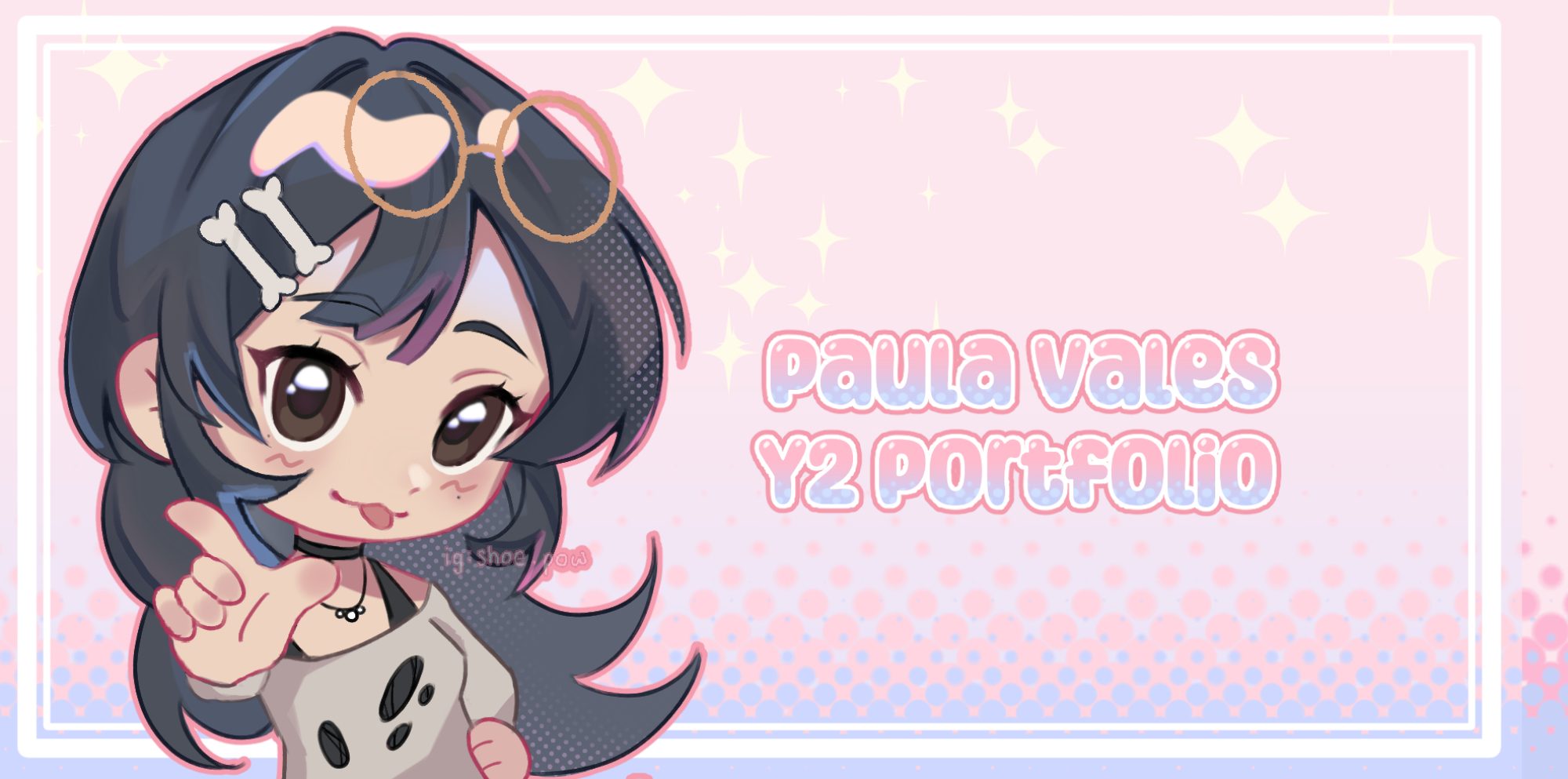Guest Speaker
This week went by quickly for me, the pressure of wanting to produce something great was already weighing down on me, although it was just the second week. This week, we were introduced to guest speaker, Paul MacGilivray. In his lecture, he came in to talk about production in games development.


One of the key things I have taken away from his lesson is that to make a quality product, there are 3 things to take into consideration: time, money and scope. Sometimes, projects will never have time, money or the scope is too big. Which is why it’s important to manage a project as soon as possible and giving time for external factors that you can’t control. I.E getting sick, family affairs.
User Story
In this lecture we were taught what user story is by Sophie. User stories are a simple sentence describing from the customer’s perspective. I.E “As the player, I want to solve murder so that I can feel a sense of accomplishment.”

As a game developer, it is not only your job to entertain the user but to understand their pressure points and frustrations. This gives a basis for you to communicate priorities to your teammates, it’s a way to make sure that you play your player rather than making unenjoyable art.
Takeaways:
- Empathy and attention to detail are how we take our games from amateur to professional
- You will always have to iterate but it’s easier to make minor tweaks than major changes.
We were then tasked with making our own user stories. I came up with, “As the player, I want to interact with the characters and explore their over the top personalities”.
Crisis Project Management
In this section of the lesson, Sophie shared with us a very inspirational personal story about her and her struggles coping with a chronic illness, which also lead to the removal of one of her organs.
You will be disabled or die suddenly and unexpectedly. You will therefore probably have to work whilst disabled and it will probably suck.
This quote made me realise how bad the economic climate currently is and in my lifetime, it most likely won’t get any better (WOOHOO!). Although I haven’t and hopefully will NEVER have to face a chronic illness or be disabled for a period of time, this also made me realise that as a games designer, it’s important that we have to face the crisis. When money is involved, we unfortunately don’t get extensions.
On a much lighter note, despite the short comings Sophie had to face, she came out with a massive accomplishment, she managed to win an award for her game in 2022 and managed to reach charts on the app store (a big congrats to Sophie!!).
As part of the crisis management, I have underlined what the minimum product will be and what the product could feature if all of our efforts were maximised:


